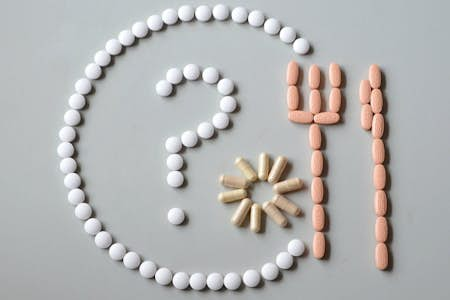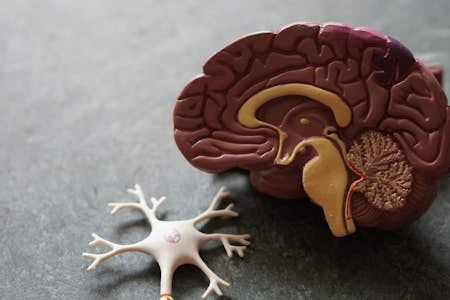It depends on the cause of the sinus infection, whether it is contagious or not. You cannot pass bacterial infections on easily, but you can with viruses. You can pass on a virus before you even know you have it, but it may not cause the same symptoms in someone else as it does for you.
Sinusitis is a term used to cover all types of sinus infection, whether viral, bacterial, or fungal.
Bacterial sinus infections can last up to two weeks. They’re hard to pass on because the bacterial growth is in the mucus of your sinuses. This makes your sinuses blocked and inflamed, but spreading the bacteria through everyday contact with others is difficult. It’s a similar story with fungal sinus infections.
Viral sinusitis usually lasts less than two weeks. You can pass on the virus, causing inflammation and pain in your sinuses to others. Passing these viruses on is possible before you know you have them. Most viruses that cause sinus infections are also responsible for colds. These colds turn into sinus infections in some people but not in everyone.
Whether you're looking for the latest vitamins and supplements, want to stock up on over the counter medication, or are looking for a digital solution for your regular prescription, our providers have you covered. Compare brands below and click on your favourite to shop their best offers now!
What are sinuses?
Your sinuses are the cavities in your head that allow air to flow freely and drain mucus and fluids from your face. There are eight sinus cavities in total, four on each side of the face:
- Frontal sinuses: Located above the eyes, in the forehead area.
- Maxillary sinuses: Situated in the cheekbones, on either side of the nose.
- Ethmoid sinuses: Positioned between the eyes, behind the bridge of the nose.
- Sphenoid sinuses: Located deep within the skull, behind the nose and eyes.
The lower cavities behind your cheekbones are the largest of your sinus passages.
Sinuses are interconnected and have a thin coating of mucus and millions of tiny hairs called cilia. They humidify and warm the air you breathe before it reaches your lungs. The cilia and mucus lining are also responsible for catching bacteria and microorganisms. Your sinus cavities protect your skull from an impact on the face.
What happens when sinuses become infected?
When your sinuses become infected, it’s known as sinusitis. The tissues in your sinus cavities swell and produce more mucus than usual. This often causes blockages, pain, and the feeling of pressure around the eyes and nose. It can make it difficult to breathe and can also be quite painful.
Common symptoms range from cold symptoms like a stuffy nose and facial pressure to more severe symptoms like fever, sore throat, facial pain, and acute sinus pressure. You cannot use these symptoms alone to identify if the cause of your sinusitis is viral, bacterial, or fungal. A physical examination by a healthcare professional and the duration of symptoms indicate what’s causing the infection.
Viruses, bacteria, and fungi can all cause sinusitis. The symptoms often feel the same despite the differing causes. However, the treatment of a sinus infection must match the cause of the infection for it to be effective. Antibiotics do not affect viruses or fungal infections.
Four types of sinus infection
Sinusitis is the name given to any sort of inflammation of the tissues in your sinuses, and its cause can be viral, bacterial, fungal, or sometimes structural. It’s a condition that impacts more than 31 million people in the United States, and over 1 billion US dollars is spent each year on remedies for sinusitis symptoms.
Understanding the cause of your sinus infection is crucial for getting the best treatment. Sinus infections often improve with rest, home remedies, or over-the-counter medications like decongestants and pain relief. You should seek medical attention if a sinus infection lasts longer than two weeks.
Most cases of viral sinus infections get better after five to seven days. Symptoms that last longer or even get worse after seven days tend to be bacterial, fungal, or related to allergies and structural conditions of the nasal cavities.
#1 Chronic sinusitis
Chronic sinusitis is usually related to allergies. Structural abnormalities, such as nasal polyps, narrow nasal passages, or a deviated septum, can also cause chronic infections. Narrow, obstructed, or deviated nasal passages make it easier for music to build up in the sinuses and more difficult for the cilia to function well.
The mucus build-up creates an environment where bacteria multiply rapidly and cause an infection. A feeling of pressure in the upper part of the face, pain similar to toothache, and even bad breath unrelated to dental hygiene are all symptoms of chronic sinus infection. These symptoms can last for months or even years without treatment.
#2 Viral infection
A viral sinus infection usually lasts less than two weeks, and you should start feeling better after five days. Antibiotics don’t help with viral infections, so home remedies and nonprescription medications are your go-to treatments. You can use Tylenol and Advil for pain relief. Other medications, such as Sudafed and Afrin, can help to relieve symptoms by clearing the sinus cavities.
#3 Bacterial infection
Bacterial sinus infections last much longer than viral infections and can worsen after seven days. Besides getting lots of rest and drinking plenty of fluids, Advil, Tylenol, and decongestants like Sudafed or Afrin can provide relief. If the sinus infection lasts longer than two weeks, it’s best to visit your doctor for a prescription of antibiotics.
#4 Fungal infection
A decreased sense of smell, fever, and inflammation of the nasal passages are signs of a fungal sinus infection. People with weakened immune systems are more likely to suffer from fungal sinusitis, although healthy immune systems can also contract them. Mold and yeast are the usual culprits for fungal sinus infections. Cases of fungal sinusitis are rare in the US, but they can cause severe health problems.
Treatments vary according to the type of fungal infection, so it’s best to seek medical advice if you suspect you have fungal sinusitis.
- Anti-fungal medication: Your healthcare provider may prescribe this to kill the fungus causing the infection. Usually, this treatment is used alongside surgery.
- Steroid medication: You can use this to reduce inflammation and relieve pressure in the sinuses.
- Nasal washes: You can use these to rinse your sinuses and remove crusted mucus. These saline solutions are used to treat saprophytic fungal sinusitis.
- Surgery: Recommended for severe cases, a surgical procedure treats fungal sinus infections from the root by removing damaged nasal tissue and the fungus causing the infection.
How long does a sinus infection last?
How long sinusitis lasts depends on the cause of the infection. Sinus infections can be as brief as five days, or in the case of chronic infections and chronic rhinosinusitis infections, they can last for years. Typically, viral sinus infections last no more than seven days, and bacterial infections take around two weeks to get over.
Rare forms of fungal sinus infections can last for three to eight weeks; however, if left untreated, they can cause death or long-term health issues. You should immediately speak with your healthcare provider if you suspect a fungal nasal infection.
How should I treat my sinus infection?
Most infections aren't contagious and pass after ten days. Although the cause of your infection is important when treating sinusitis, you can still take steps to help symptoms improve without getting a proper diagnosis. The following tips can help to relieve and even prevent sinus infections:
1. Rest and keep hydrated
Get lots of rest to help your body recover from the infection. Drinking plenty of water, clear broths, and herbal teas can work to thin mucus, relieving congestion.
2. Nasal sprays
You can use saline nasal sprays to flush mucus and relieve congested passageways. Be sure to use sterile water by boiling and leaving to cool first to avoid introducing harmful bacteria.
3. Decongestants and pain medication
Nonprescription sprays or pills can relieve nasal congestion and the pain of sinusitis. Decongestants shouldn’t be used for more than a few days, as they can worsen your congestion.
4. Avoid irritants
Many cases of sinusitis are related to allergies. Avoiding exposure to irritants such as cigarette smoke, pollens, and strong odors can relieve sinusitis symptoms.
5. Humidify air while you sleep
Using a humidifier in your bedroom adds moisture to the air, soothing irritated nasal passages and making breathing easier.
6. Inhaling steam
Like a humidifier, inhaling steam from a bowl with a towel draped over your head can temporarily relieve congestion. You can also use a steam inhaler.
7. Elevate your head while sleeping
Sleeping with your head slightly elevated can reduce nighttime congestion.
Most sinus infections resolve themselves with home remedies and rest. If sinusitis persists for longer than two weeks, you should consult your healthcare provider for advice and a medical diagnosis.
Image Credit: Tima Miroshnichenko at Pexels









